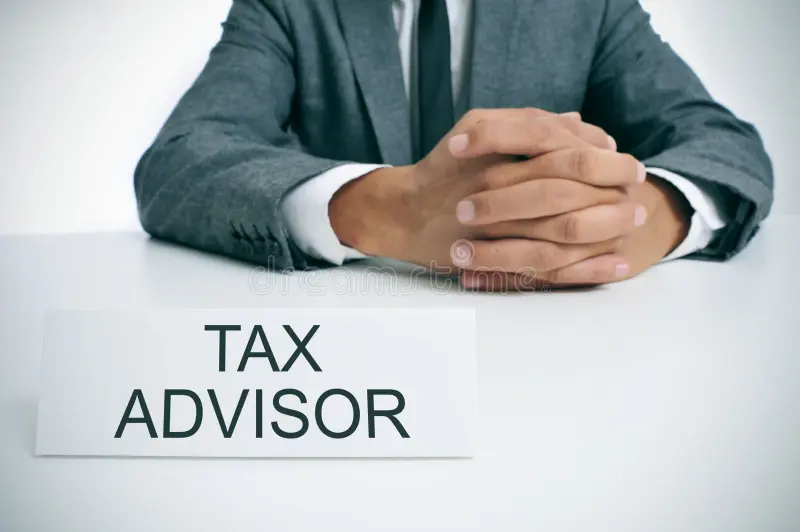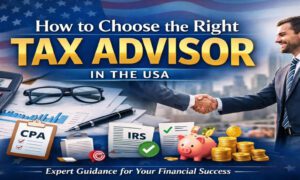Navigating taxes—whether for personal finance or small business—isn’t for the faint of heart. From ever-changing tax laws to obscure deductions and complex filings, the wrong move can cost you money, time, or even trigger an audit. That’s why understanding how to find a tax advisor who is qualified, trustworthy, and aligned with your financial goals is critical.
This guide will walk you through red flags to avoid, green flags to pursue, and key questions to ask to ensure you choose the right professional.
Why You Need a Tax Advisor
Before we dive into the vetting process, it’s important to know when hiring a tax advisor makes sense. Here are a few scenarios:
- You run a small business or are self-employed.
- You have multiple income streams (freelancing, investments, real estate).
- You’ve experienced a major life event (marriage, divorce, inheritance).
- You want to minimize your tax liability legally.
- You’re facing an audit or back taxes.
In short, a good tax advisor can save you more than their fee.
Red Flags: When to Walk Away
Even if someone has the right certifications, not all tax advisors are created equal. Be wary of these warning signs:
- Promises of Huge Refunds
If a tax preparer guarantees you a large refund before reviewing your finances, that’s a serious red flag. Ethical advisors never make claims without seeing the full picture.
- Lack of Credentials
Legitimate tax advisors usually hold credentials like CPA (Certified Public Accountant), EA (Enrolled Agent), or tax attorney licensure. If they have no verifiable credentials, keep looking.
- Fees Based on Refund Percentage
Be suspicious of advisors who charge fees based on the size of your refund. This incentivizes questionable practices and can increase your risk of IRS scrutiny.
- No PTIN
The IRS requires all paid tax preparers to have a valid Preparer Tax Identification Number (PTIN). If your advisor doesn’t have one, that’s a deal-breaker.
- Limited Availability
You want someone available year-round, not just during tax season. Tax planning is a year-round endeavor, and good advisors don’t disappear once April passes.
Green Flags: Signs of a Quality Tax Advisor
Just as important as what to avoid is knowing what to seek out. Here are some positive indicators:
- Solid Credentials and Ongoing Education
CPAs, EAs, and tax attorneys are required to stay current with tax laws. Look for advisors who take continuing education seriously and belong to professional organizations like the AICPA or NAEA.
- Experience in Your Specific Situation
If you’re a small business owner, an advisor with experience in self-employment and corporate structures (LLCs, S Corps, etc.) is invaluable. Similarly, real estate investors or high-net-worth individuals benefit from niche expertise.
- Transparent Fee Structure
Trustworthy advisors are upfront about their pricing. Whether it’s hourly, flat-rate, or retainer-based, you should know what you’re paying for.
- Technology-Forward
Digital tools like secure client portals, electronic filing, and bookkeeping integrations are signs your advisor is efficient and up-to-date.
- Proactive Communication
Great advisors don’t just file your taxes—they offer tax-saving strategies, reminders, and planning advice throughout the year.
Must-Ask Questions to Vet a Tax Advisor
Finding the perfect tax advisor starts with asking the right questions. Use these during your consultations:
- What Are Your Credentials, and How Long Have You Been Practicing?
You want to confirm both their licensing and experience. Ten years in the field with a clean record is typically a good benchmark.
- What Types of Clients Do You Typically Work With?
This helps you understand if their experience aligns with your needs. If you’re a freelancer, an advisor who primarily handles corporate tax might not be the best fit.
- What Is Your Approach to Tax Planning?
Look for someone who views tax work as more than just compliance. A good advisor should discuss proactive strategies for reducing future tax liabilities.
- How Do You Stay Up to Date on Tax Law Changes?
Tax laws change often. Their answer will give you insight into their commitment to staying educated and compliant.
- What Is Your Fee Structure?
Ask if they charge by the hour, by the form, or via a fixed rate. Understand what’s included—will they help with audits? Do they charge extra for phone consultations?
- How Will We Communicate and How Often?
Clear communication expectations are crucial. Find out how they prefer to communicate (email, phone, meetings) and how quickly they respond to inquiries.
- Can You Represent Me in Front of the IRS?
Only CPAs, EAs, and tax attorneys have unlimited rights to represent clients before the IRS. Make sure your advisor can help if you ever face an audit or appeal.
- Do You Offer Year-Round Support?
The best tax advisors don’t disappear after April. They should be available throughout the year to assist with estimated taxes, business planning, or other questions.
How to Find a Tax Advisor: Where to Start
So now that you know what to look for and what to avoid, here’s how to find a tax advisor who checks all the right boxes:
- Referrals
Ask trusted friends, business peers, or financial advisors for recommendations. Be specific about your needs to get the most relevant suggestions.
- Professional Directories
Use official databases like:
- IRS Directory of Federal Tax Return Preparers
- National Association of Enrolled Agents (NAEA)
- American Institute of CPAs (AICPA)
- Online Reviews
Look for consistently positive feedback on Google, Yelp, and LinkedIn. Pay attention to patterns—both good and bad.
- Social Media and Forums
Sites like Reddit’s r/tax, local Facebook business groups, or industry-specific Slack channels often surface firsthand experiences and hidden gems.
Final Thoughts
Hiring a tax advisor isn’t just about staying compliant—it’s about building a long-term relationship with someone who can help you achieve your financial goals more strategically and efficiently. By learning how to find a tax advisor and knowing the red flags, green flags, and smart questions to ask, you’ll be well-equipped to make a confident and informed decision.
A little research up front can mean thousands saved down the road—and priceless peace of mind.

































